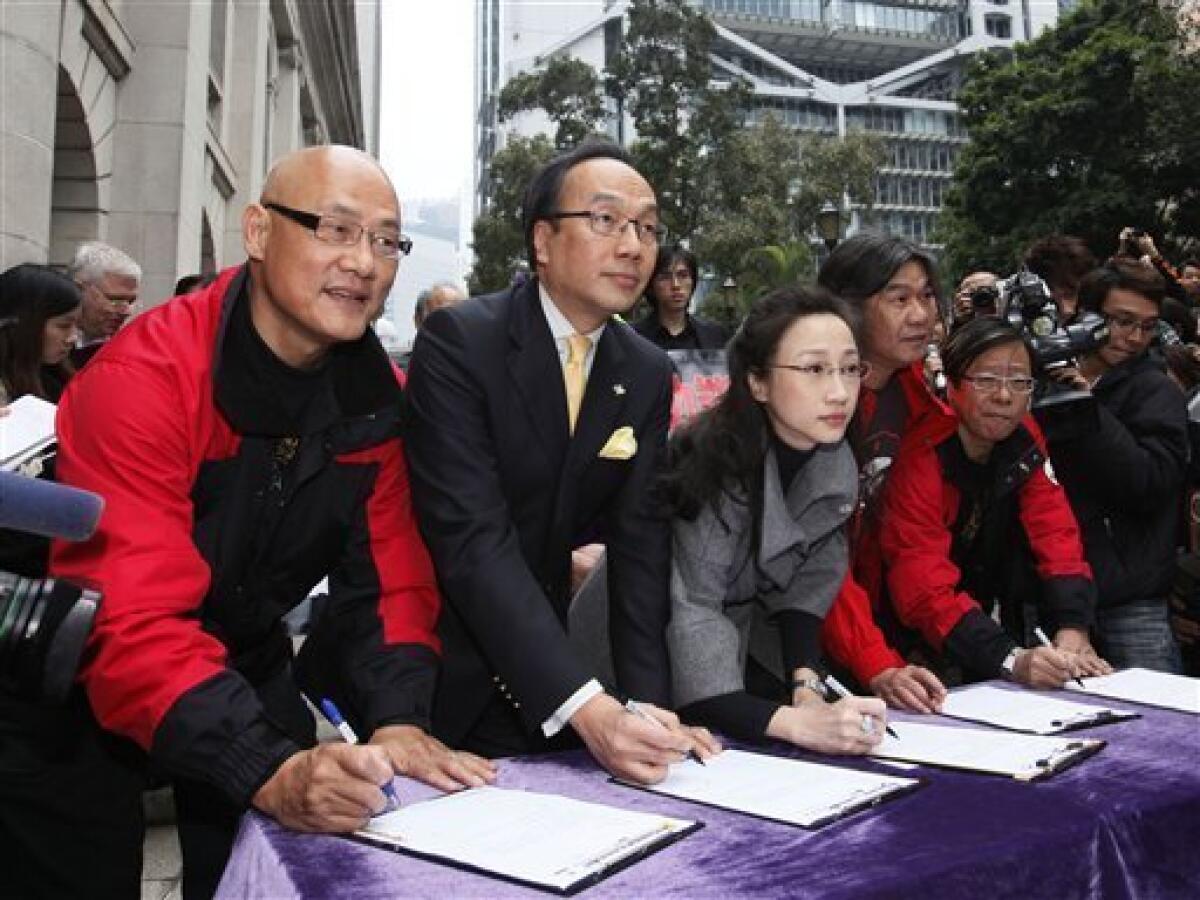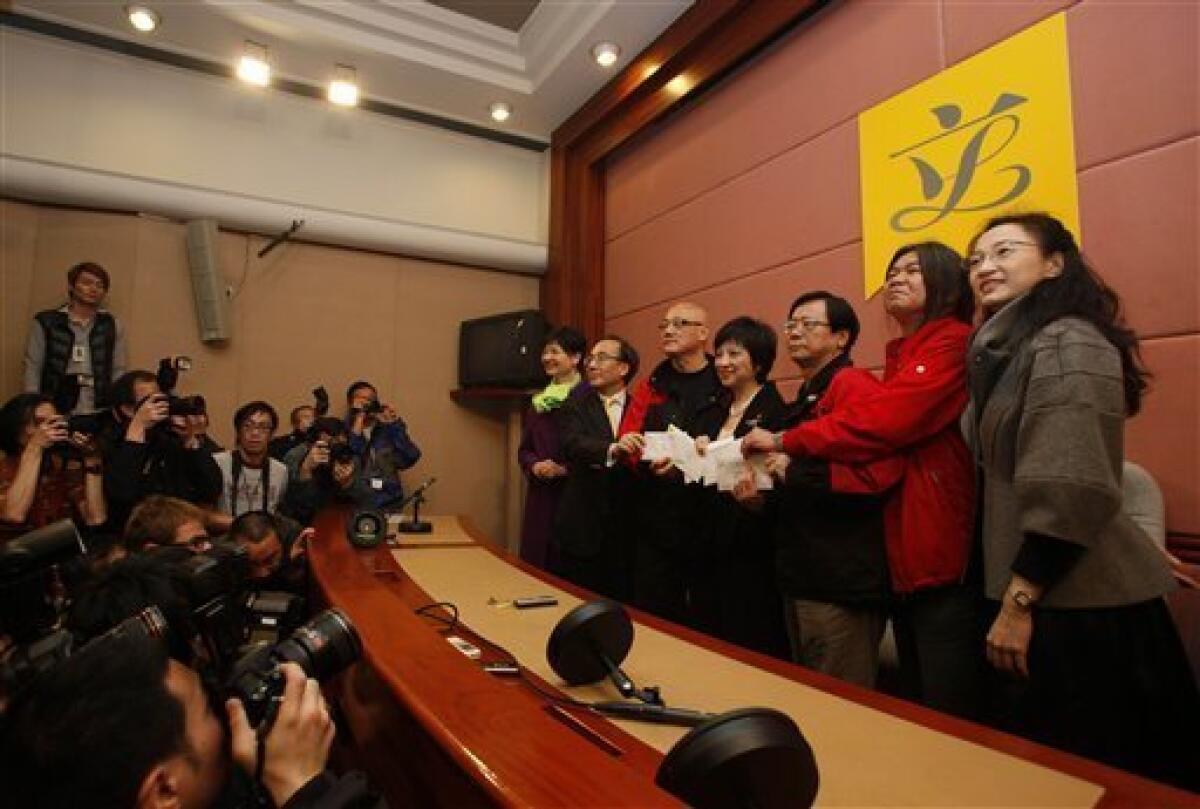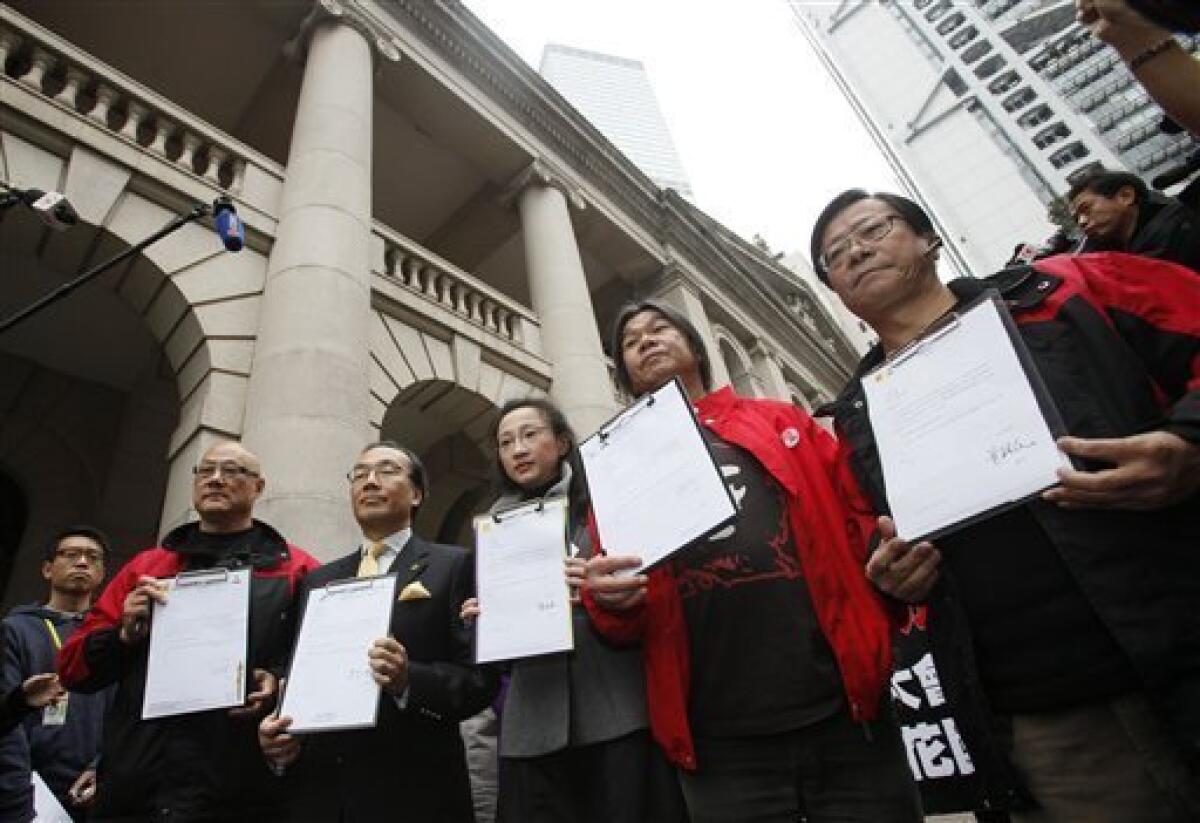Hong Kong lawmakers seek ‘referendum’ on democracy



They’ve staged large protests and hunger strikes to little avail. They’ve made their case in legislative debate. At wit’s end, Hong Kong’s democracy movement is hoping to engineer a de facto referendum to pressure Beijing to hold direct elections in this semiautonomous Chinese territory.
Five legislators from two opposition political parties resigned on Tuesday - one from each of Hong Kong’s five electoral districts - triggering territory-wide special elections later this year. The two parties - the League of Social Democrats and the Civic Party - will then compete in the by-elections, the idea being that their candidates will face off against pro-China ones in what they hope amounts to a referendum on full democracy.
“We will turn our resignations into a platform so that everyone can say what’s on their minds,” resigning legislator Leung Kwok-hung said.
The lawmakers face a tough challenge. Recent opinion polls show lukewarm public support. Hong Kong’s leading pro-democracy opposition party, the Democratic Party considered the resignation plan too politically risky and didn’t take part.
One leading pro-Beijing party has already said it will skip the special elections. Others could follow suit, making for meaningless, uncontested elections that would return the pro-democracy candidates to seats they already held.
But the fact that the five legislators are willing to roll the dice shows the desperate situation of the Hong Kong democracy movement.
A British colony for more than 150 years, this wealthy financial hub of 7 million people was returned to China’s communist regime 13 years ago under a special political status that promises Western-style government and civil liberties. But Beijing has continued to withhold democracy. The territory’s leader is chosen by an 800-member committee in Hong Kong stacked with China’s allies. Its 60-member legislature is half elected, half chosen by interest groups - a system that has all but guaranteed a majority for Beijing loyalists. The pro-democracy opposition currently holds 23 seats.
Hong Kong’s democracy activists have argued for years that residents are mature enough to pick their own leaders. The movement gained momentum in 2003, when half a million people protested a national security bill wanted by Beijing as too draconian, forcing the Hong Kong government to shelve the measure. Large pro-democracy protests followed.
But the protest numbers have dwindled in recent years as Hong Kongers turned their attention to economic issues.
Beijing, meanwhile, hasn’t budged, ruling in 2007 that Hong Kong could elect its own leader by 2017 although not promising reform by that date.
The referendum plan “stems from great frustration over Beijing’s perpetual procrastination and the knowledge that Beijing is hoping to exploit the same public inertia that the pan-Democrats want to overcome,” Hong Kong-based political scientist Suzanne Pepper said.
Pepper, the author of “Keeping Democracy at Bay: Hong Kong and the Challenge of Chinese Political Reform,” said the Chinese government is likely to keep stalling.
“Beijing’s intention is obviously to drag out the process as long as possible in hopes that the public will eventually lose interest and learn to conform as mainlanders do,” she said.
The Chinese government didn’t immediately comment on Tuesday, but it criticized the resignation plan in a statement more than a week ago, calling it a challenge to its authority.
Even if the pro-democracy parties soundly beat pro-China candidates, there is always the possibility that Beijing will simply ignore the result, as it has largely done with street protests.
Hong Kong leader Donald Tsang said his government won’t recognize the “so-called referendum.”
“Legislators should do their jobs and fulfill their constitutional duty through the legislature. They shouldn’t quit easily,” Tsang said in a statement.
Hong Kong’s Secretary for Constitutional and Mainland Affairs Stephen Lam said the government will arrange for special elections as required by law, but didn’t announce a date. Hong Kong law requires the government to stage the elections as soon as possible, but doesn’t set a deadline.
Lam noted the expensive price tag of the by-elections - 150 million Hong Kong dollars ($19 million) - and suggested that the expense might actually weaken support for the democracy movement.
“Taxpayers will have views about this,” Lam said.